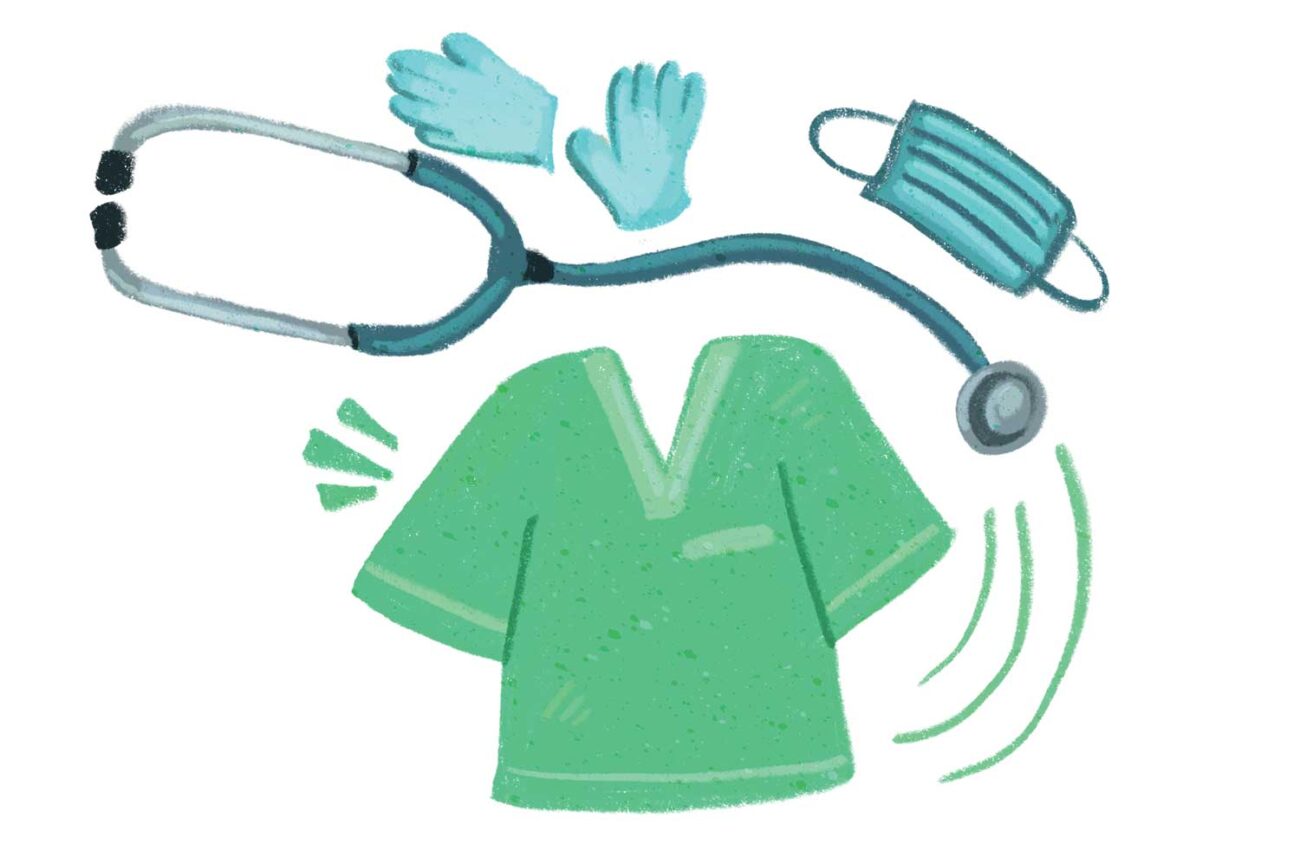As long as people continue aging or seeking medical attention, there is a need for certified nursing assistants. They work all hours of the day to ensure your family members are in good hands in hospitals, they are in your loved ones’ long- and short-term care homes, and their assistance seriously impacts the day-to-day lives of those they are working with.
Dare to Care, based in Eugene and Lebanon, trains hundreds of students to get their nursing assistant (NA) title. The NA shows a person has completed training, but is not yet a CNA, which requires passing a state certification exam.
CNAs are often found helping geriatric patients, aiding them with mobility, meals and other day-to-day activities. In hospitals, CNAs monitor vital signs, position patients for procedures, and overall play a vital role in how the medical field runs and operates.
CNAs often work as assistants to registered nurses, who have a larger scope of responsibilities they are qualified for and expected to complete. CNAs are also different from medical assistants, because CNAs do more hands-on help with patients’ daily needs, while medical assistants work under a doctor, and tend to perform more administrative tasks.
The Oregon State Board of Nursing requires 65 hours of classroom and skills education, which leads to 40 hours of clinical work to become a CNA. Clinical hours are often fulfilled at care facilities, such as nursing homes. These 105 total hours are offered through intensive programs such as at Dare to Care.
“The verbiage of titles matters. We offer nursing assistant training programs. They cannot be described or referred to as CNA training programs because that could give misrepresentation that when you complete the program, you’re a CNA,” says Tabetha Proctor, office manager and school coordinator at Dare to Care. Rather, when you complete the program, you are an NA, and need to take the state certification exam for the certification to be a CNA.
According to Proctor, once students have completed their NA, they can work the role a CNA would for 120 days until they are required to complete the exam.
“It’s kind of this bridge that the state of Oregon allows so that people don’t have a large gap between completion of training and being eligible for employment,” says Proctor. If an NA has not completed their exam after 120 days, they are no longer eligible to work until they have passed their board exams.
Dare to Care started in 2012, and was originally titled “Tender Touch.” Registered nurse Sherry Huff started the business in 2012, and according to Proctor, she was running the entire business solo.
“At the time it was just her doing the teaching, the registration,” says Proctor. She explains Huff was covering all areas, bouncing between administrator and teacher.
Now, 13 years later, Dare to Care has evolved in response to an influx of students, a need for instructors, and overall help with running and growing the company from scheduling and coordinating classes to CPR instructors. Dare to Care now offers day and night classes, as well as classes at two locations — Eugene and Lebanon.
“I think employers have come to know and trust and expect a certain level of proficiency from our graduates,” Proctor says. She says administrators and employees from facilities or hospitals have told her they can tell “within the first hour of working with someone, whether or not they’re one of your students.”
According to Proctor, the mission of Dare to Care is in the name. When Huff started the business, she did so with an emphasis on compassion and preparing passionate and respectful students to work in the field or go forward with their medical studies.
While Dare to Care currently only offers in-person nursing assistant programs, they are looking into offering hybrid programs in the future. Proctor also says they wish they could offer medication aid training, but that can be prohibitive because the clinical hours require one-on-one training, therefore adding a greater need for instructors.
Certified medication aids are trained CNAs who have further training allowing them to disperse daily medication. “The administering medication is outside the authorized duties of a CNA.”
Proctor says it can be difficult growing the number of instructors, because “to teach, and as a CNA instructor, the instructor has to be an RN.” This means nursing assistant instructors are registered nurses with the qualifications and education of a nurse, but they are getting paid as a teacher.
“I think if you went around and sampled every single training program, whether it was a community college, a program like Bushnell, or a facility training, they would all agree that finding staff is the hardest part,” Proctor says.
Regardless of this difference in wages, Proctor says she continues to work at Dare to Care because “I love what we do. I believe in what we do. It gives me a sense of accomplishment and to know that, you know, I’m a part of helping these students.”
Find Dare to Care at Dare2Care4cna.com or call 541-688-4262. Dare to Care can also be reached at dare2care4cna@hotmail.com.
